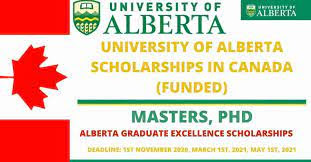Popular Courses in Canada
Attaining a Bachelor’s Degree in Canada will give you the knowledge and qualifications necessary to pursue a career in your chosen field, or continue your studies for a Master’s/PhD.
The degree structure for undergraduate programs takes a more liberal approach in regards to the classes you are able to choose within your field of study. A certain amount of credits are given upon completion of each course.
The student has the option to choose from a number of courses offered in the department that he or she is studying in. This is different from, say, the degree structure in France, in which the institute decides which courses need to be taken each semester.
Competition is high to be accepted into most universities. If English is not your first language, you will need to take a proficiency test. Any evidence of secondary school achievements (GPA, volunteering, student clubs, etc.) will heighten your chances of acceptance!
Master’s Degrees
Up until the last few years, Canada (and the US.) only accepted students with a 4 year Bachelor’s degree into their Master’s programs, while most countries offer Bachelor’s programs that can be completed within 3 years. But the demand of international students wishing to study in Canada has increased dramatically (11% since 2017), along with it universities now accepting 3 year Bachelor’s degrees as prerequisite for Master’s programs.
Most Master’s programs take 1-2 years to complete, and come in the form of a Master of Science (MSc) or a Master of Arts (MA). If you’d like to whittle down your postgraduate degree even more, you can also choose between a Master of Business Administration (MBA), Master of Engineering (MEng), or Master of Fine Arts (MFA).
You’ll be looking at around CA$13,000-20,500 per year for a Master’s degree.
Canada has a wonderful Post-Graduation Work Permit Program (PGWPP) in place to further incentivize international students to obtain jobs after finishing grad school. 90% of those that stick around Canada after completing a postgraduate course are in the workforce within 6 months!
PhDs
Want to take your postgraduate studies another step forward? Whether you have already completed your Master’s degree elsewhere, or you are currently chipping away, finding the right PhD program in Canada will come with a wealth of benefits.
Again, Canada’s tuition fees for international students pursuing a Doctorate is more attractive than its North American neighbor to the south, as well as Australia and the UK. Some Canadian universities are reducing or even obliterating extra fees for internationals in their Doctoral programs.
There are currently close to 200,000 international students taking on their PhDs in Canada, which can take anywhere from three to six years to complete.
Upon completion of your PhD, you are entitled to a 3 year work permit, which could eventually lead to permanent residence or citizenship.
Postdoctoral
Postdoctoral fellows (PDFs), otherwise known as postdoctoral researchers, are those that choose to remain in academia after completing their PhDs. Most universities have their own internal fellowships, but there are also many outside agencies that can help place PDFs with organizations or institutions.
Top Scholarships to Apply for in Canada
- David Johnston – Lebovic Foundation International Experience Awards in Canada
- Ubakata Fund for Japanese Students at the University of Toronto in Canada, 2021
- President’s funding for World Leaders for International Students in Canada, 2021
- University Entrance Scholarship at Concordia University of Edmonton, Canada, 2021
- International Undergraduate Student Bursary at the University of Alberta in Canada, 2021
- General Bursary Program at the University of British Columbia in Canada, 2021
- TSoM Love Canada Diploma Scholarships for International Students in Canada, 2021
- VISTA Postdoctoral Fellowships at York University in Canada
- merit awards for International Students at CEGEP in Canada
- ESL Graduate Bursary for International Students at University of Saskatchewan, 2021
